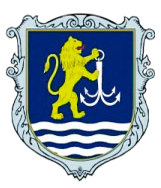ENVIRONMENTAL CRITERIA FOR SUSTAINABLE DEVELOPMENT IN STRATEGIC MANAGEMENT OF SEA TRANSPORT COMPANIES
Abstract
Introduction. The relevance of the research topic is due to the significant impact of environmental factors on the world economy, in particular, the shipping industry, and increased attention from investors, regulators, employees and other stakeholders to the environmental aspects of the activities of transport and logistics companies. Purpose. The article is devoted to the improvement of the methodological and methodical foundations of the development of the corporate strategy of transport companies, taking into account the environmental criteria of sustainable development, based on the analysis of the practical experience of shipping and logistics companies, and the study of new approaches to financing investing in projects directed to the solution of environmental problems in the shipping industry. Results. The practical experience of development the corporate strategy by shipping and logistics companies taking into consideration environmental factors is systematized. The role of The Poseidon's Principles in financing investments related to solving environmental problems in the shipping industry and new instruments for financing investments in projects related to solving environmental problems in shipping based on long-term debt financing are determined. A universal structure of environmental criteria for sustainable development of shipping and logistics companies is proposed. Conclusions. The most important environmental factors for shipping and logistics companies include: emission reduction, wastewater treatment system, decarbonization of supply chains, green fuel and promotion of ship recycling. The practical benefit of The Poseidon Principles, which are widely recognized by the largest financial institutions in the shipping industry, is that companies must measure their emissions annually and publish the results, indicating the extent to which specific measures meet strategic commitments to gradually reduce emissions. To finance projects related to solving environmental problems, it is advisable to attract long-term investments through the targeted issuance of corporate green bonds. The universal structure of environmental criteria for sustainable development for transport and logistics companies should include the formation of environmental policies, plans and periodic review of intermediate goals; creation of an environmental management system; setting deadlines for achieving goals in accordance with the requirements of international organizations and state legislation; an obligation to use only fuel that meets standards and an active focus on reducing fuel consumption; development of ship modification and conversion programs; improvement of operational efficiency; introduction of energy-efficient and decarbonization technologies and equipment; promotion of green recycling of ships; improvement of the ballast water treatment system; support for research, financing, development and implementation of ship facilities to improve the energy efficiency of ships. The integration of environmental criteria into the strategic management of the enterprise helps to ensure a balance between achieving profit and preserving nature, improving the lives of employees and maintaining high standards of corporate responsibility.
Downloads
References
2. Bank for International Settlements 2020: The green swan. Central banking and financial stability in the age of climate change. Retrieved from https://www.bis.org/publ/othp31.pdf
3. Matos P. (2020). ESG and Responsible Institutional Investing Around the World. A Critical Review. CFA Institute Research Foundation. 82 p. Retrieved from http://surl.li/bigiou
4. Jägerbrand A., Brutemark A., Barthel Svedén J. & Gren I.M. (2019). A review on the environmental impacts of shipping on aquatic and nearshore ecosystems. Science of The Total Environment. 695. DOI: https://doi.org/10.1016/j.scitotenv.2019.133637
5. ESG in transportation: much more than a trend. Asia Shipping. June 30, 2023. Retrieved from https://www.asiashipping.co/en/blog/esg-intransportation-much-more-than-a-trend
6. Gerliand T. (2024). Ecological competence of ship operators in the context of sustainable development. Professional Pedagogics. 1(28). 152–158. DOI: https://doi.org/10.32835/2707-3092.2024.28.152-158
7. United Nations Framework Convention on Climate Change (1992). Retrieved from https://zakon.rada.gov.ua/laws/show/995_044#Text
8. Transforming our world: The 2030 Agenda for Sustainable Development. Resolution adopted by the UN General Assembly (2015). Retrieved from https://sdgs.un.org/2030agenda
9. Paris Agreement on Climate Change. – UN (2015). Retrieved from https://unfccc.int/process-and-meetings/the-paris-agreement/the-paris-agreement
10. Resolution of the Cabinet of Ministers of Ukraine No. 179, March 3, 2021: National Economic Strategy for the period until 2030. Retrieved from https://zakon.rada.gov.ua/laws/show/179-2021-%D0%BF#n25
11. Deloitte Certified Public Accountants Societe: ESG in the Shipping sector (2021). The role of ESG in the evaluation of shipping companies. Retrieved from http://surl.li/tsvdm
12. Maersk Annual Report 2022. Retrieved from http://surl.li/tsvin
13. “K” LINE Group official site. Retrieved from https://www.kline.co.jp/en/index.html
14. Höegh Autoliners official site. Retrieved from https://www.hoeghautoliners.com/biofuel
15. Poseidon Principles “A global framework for responsible ship finance”, April 2023. Retrieved from http://surl.li/tsvdr
16. MOL to Become World's 1st Shipping Company to Issue Blue Bonds. Mitsui O.S.K. Line Group official site. December 15, 2023. Retrieved from https://www.mol.co.jp/en/pr/2023/23150.html





